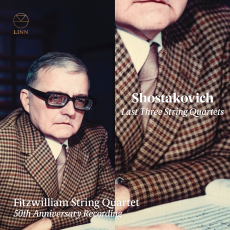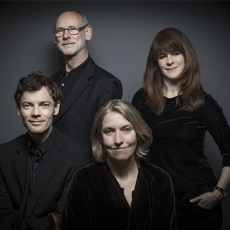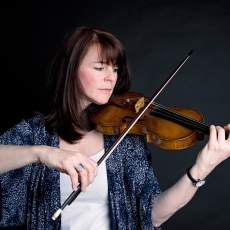Fitzwilliam String Quartet - Shostakovich: Last Three String Quartets - Gramophone
Only one of the players on this official 50th-anniversary recording was part of the Fitzwilliam Quartet that recorded the group’s historic Shostakovich cycle in 1977. That’d be the viola player, Alan George, and it’s his presence, his experience and his recollections of the group’s extraordinary relationship with the composer (thoroughly documented in the booklet) that makes this more than simply a powerful and superbly played new Shostakovich recording.
A comparison with those classic recordings is unavoidable. I started with the Fifteenth Quartet, and whereas in 1977 the Fitzwilliams positively throbbed, what we get in 2019 is unmistakably a 21st-century quartet sound – unafraid to dial down the vibrato but nonetheless producing a singing, chant-like line. George mentions how, in the 1970s, the idea of a non-Russian quartet playing Shostakovich was almost heresy. The original Fitzwilliams carefully studied the style of such leading Soviet-era outfits as the Beethovens and Borodins. But we’re past that now, and these transparent, refined and frequently brilliant performances are thoroughly up to date.
Which is not to suggest that they lack passion or understanding of the idiom. George’s presence guarantees that, and his own warm and eloquent playing is one of the glories of this disc. None of these four players is afraid to push things to extremes; the blinding shaft of sound with which the violins shatter the opening meditation of the Thirteenth Quartet has the intensity of a migraine. The shriek that ends the same work – and which returns at the end of the Fifteenth’s opening Elegy – is properly frightening. They’re raw where they need to be, and the black humour of the Fourteenth Quartet’s outer movements can flip within a phrase into playfulness or terror. The Fitzwilliams never quite let you relax.
And yet – and this is perhaps the most fascinating revelation – you’re repeatedly blindsided by the tenderness and humour of this supposedly death-haunted music. George’s viola wandering softly through the Nocturne of the Fifteenth, or the delicacy and sense of sonic perspective (the recorded balance is atmospheric and admirably clear) with which the Fifteenth shivers into silence; the natural, half-humorous lilt as the Thirteenth moves into its Doppio movimento or the positively Mahlerian Adagio of the Fourteenth – these, and countless other moments, paint a picture of the composer that is simultaneously intimate and epic; mysterious and yet uncompromising. In short, these are performances born of honesty and of love: a deeply moving document of a great quartet and its unique connection to a composer who George remembers as a man of ‘simple humility, human warmth, kindness and generosity’.


